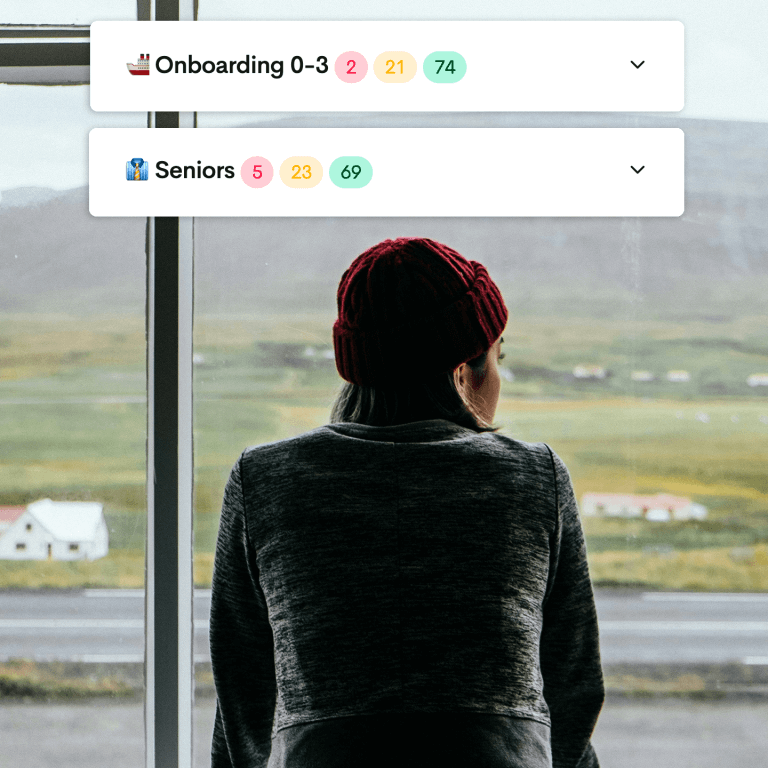
SECTOR: TOURISM
How do you manage a unified company culture when each team has a completely different reality?
A hotel in Madrid, another in Barcelona, staff in reception, kitchen, housekeeping, administration… No two teams work with the same dynamic, yet they’re all part of the same company. And here’s the challenge: how do you achieve a unified culture in a sector where work experiences differ so greatly?
High turnover is a constant issue. The lack of connection between offices and day-to-day operations fosters disengagement and hinders communication. Meanwhile, stress keeps piling up in the most critical teams.
You try to react, but the problem is always one step ahead. How can you keep talent from leaving before you have time to act?
Main Pain Points
Constant turnover, absenteeism
- Turnover in the hospitality sector exceeds 70% per year, more than double that of other industries.
- Replacing an employee can cost up to 50% of their salary, factoring in training, adaptation, and lost productivity.
- 60% of workers who leave cite lack of growth opportunities as their main reason for quitting.

Fragmented, disconnected culture
- 65% of hospitality employees say internal communication is poor, affecting team cohesion.
- In companies with multiple locations, operations employees have 40% less interaction with management, creating a gap in cultural alignment.
- Lack of visibility into the emotional state of teams makes it harder for HR to make strategic decisions.

Operational, not human-centered leadership
- 70% of mid-level managers in hospitality were promoted from operations without leadership training.
- Over 50% of employees report job-related stress due to lack of feedback and effective team management.
- Task-focused leadership alone contributes to demotivation and talent loss.


TOURISM
BENEFITS of using mentiness
From losing talent without knowing why → to anticipating turnover and making strategic decisions
Previously, turnover in hospitality exceeded 70%, with high training and productivity costs. Now, with our Financial Dashboard, you can predict departures and reduce the impact on your business.
From operational managers without leadership training → to leaders who strengthen team stability
Before, 70% of mid-level managers were promoted without leadership training, leaving teams demotivated. Now, with LeIA, managers learn how to provide feedback, manage teams, and reduce operational stress.
From disconnected teams across locations and departments → to a cohesive culture with fluid communication
Previously, a lack of interaction between teams and management led to a fragmented culture. Now, with our scientific surveys and AI Assistants, you can pinpoint critical issues at each location and offer personalized support to every team.





